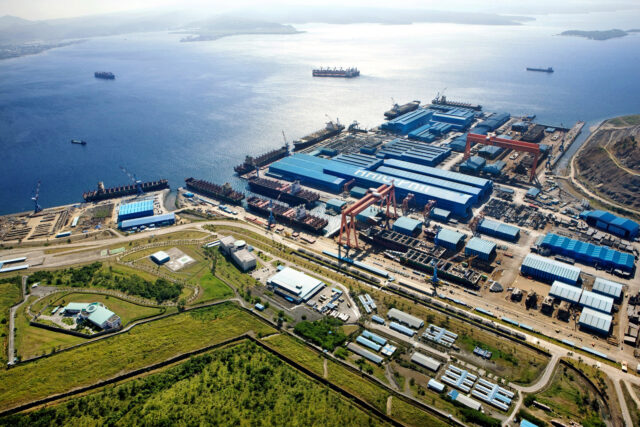Philippines, US hold joint air patrol over South China Sea, angering China

THE AIR FORCES of the Philippines and the US held joint patrols over the South China Sea on Tuesday, a move that angered China, which also conducted a “routine patrol” over the disputed Scarborough Shoal.
The Philippines and the US have boosted security arrangements under President Ferdinand R. Marcos, Jr. amid rising tension between Manila and Beijing due to overlapping claims in the waterway.
The one-day exercise by the treaty allies took place in the West Philippine Sea, Philippine Air Force spokesperson Maria Consuelo Castillo said, using Manila’s term for waters in the South China Sea that fall within its exclusive economic zone.
“The exercise aimed to enhance operational coordination, improve air domain awareness and reinforce agile combat employment capabilities between the two air forces,” she said in a statement.
Ms. Castillo said three Philippine FA-50 fighter aircraft and two US B1-B bombers participated in the exercise, which included flying over Scarborough Shoal, where the Chinese air force also carried out what it called a routine patrol.
China has controlled the shoal since 2012.
In a statement, China’s military accused the Philippines of joining patrols that it said were organized by foreign countries to “undermine peace and stability” in the South China Sea.
China’s air force units would keep a “high degree of alert, resolutely defend China’s territorial sovereignty and maritime rights and interests, and control any military activities that disrupt the South China Sea,” the People’s Liberation Army’s (PLA) Southern Theater Command added.
China claims almost the entire South China Sea, including parts claimed by the Philippines, Brunei, Malaysia, Taiwan and Vietnam. It asserts its sovereignty claim through an armada of coast guard ships, despite a United Nations-backed court ruling in 2016 that voided its claim for being illegal.
At a briefing on Tuesday, the Philippine Navy said it was “closely monitoring” three Chinese navy vessels within Manila’s maritime zones, including a Jiangkai-class guided missile frigate.
“The presence of the People’s Liberation Army-Navy reflects the People’s Republic of China’s complete disregard for international law and undermines the peace and stability in the region,” navy spokesman John Percie Alcos said.
On Monday, state news agency Xinhua said the passage of the Chinese fleet was consistent with international law, quoting a spokesperson of the PLA’s Southern Theater Command.
The US and its allies should limit China’s access to technology and data to curb its expansionist ambitions in the South China Sea through coordinated military deterrence, Matthew Forbes Pottinger, a former deputy national security adviser of US President Donald J. Trump, told a security forum in Manila on Monday.
The Philippines has contested China’s sweeping claim in the waterway through diplomatic channels by filing more than 190 diplomatic protests since Mr. Marcos took office in 2022.
“Gratuitous efforts to flatter and reassure Beijing are likely to be taken as signs of weakness,” Mr. Pottinger said.
Countries should also consider banning Chinese-made apps such as TikTok and WeChat to prevent Beijing from conducting what he described as “information warfare” and weaken its “discourse power.”
“All we need to do is prevent Beijing’s platforms from manipulating our discourse at home, while making it easier for Chinese citizens to communicate safely with one another and with the outside world,” he added. — Reuters











